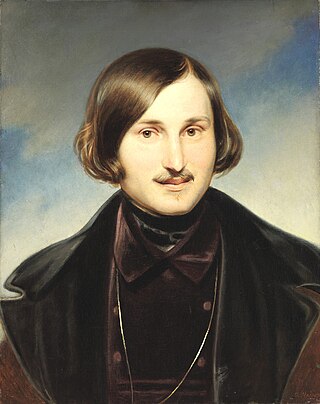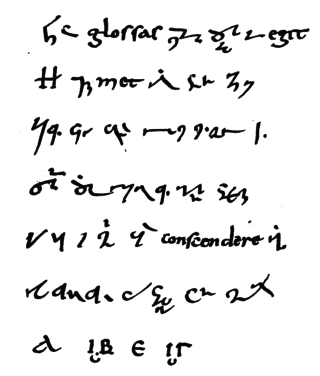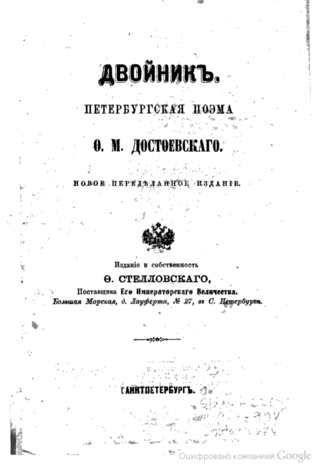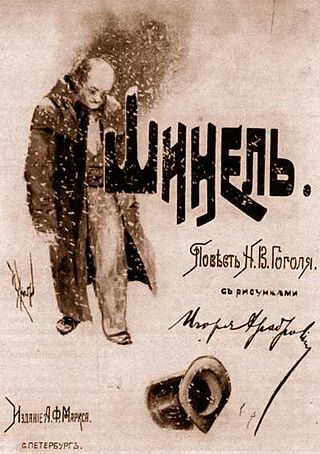Related Research Articles
A split infinitive is a grammatical construction in which an adverb or adverbial phrase separates the "to" and "infinitive" constituents of what was traditionally called the "full infinitive", but is more commonly known in modern linguistics as the to-infinitive. In the history of English language aesthetics, the split infinitive was often deprecated, despite its prevalence in colloquial speech. The opening sequence of the Star Trek television series contains a well-known example, "to boldly go where no man has gone before", wherein the adverb boldly was said to split the full infinitive, to go. Multiple words may split a to-infinitive, such as: "The population is expected to more than double in the next ten years."

The Catilinarian orations are four speeches given in 63 BC by Marcus Tullius Cicero, one of the year's consuls. The speeches all related to the discovery, investigation, and suppression of the Catilinarian conspiracy, a plot that year to overthrow the republic. All of the speeches in the form available today were published, probably around 60, as part of Cicero's attempt to justify his actions during the consulship; whether they are accurate reflections of the original speeches in 63 is debated.
In grammar, a conjunction is a part of speech that connects words, phrases, or clauses, which are called its conjuncts. That description is vague enough to overlap with those of other parts of speech because what constitutes a "conjunction" must be defined for each language. In English, a given word may have several senses and in some contexts be a preposition but a conjunction in others, depending on the syntax. For example, after is a preposition in "he left after the fight" but a conjunction in "he left after they fought".

Nikolai Vasilyevich Gogol was a Russian novelist, short story writer, and playwright of Ukrainian origin.
Titus Albucius was a noted orator of the late Roman Republic.
Quintus Tullius Cicero was a Roman statesman and military leader, as well as the younger brother of Marcus Tullius Cicero. He was born into a family of the equestrian order, as the son of a wealthy landowner in Arpinum, some 100 kilometres (62 mi) south-east of Rome. He is known for his political career, governorship of Asia, time serving as a general in Gaul under Caesar, and for his relationship with Cicero.

Tironian notes are a form of thousands of signs that were formerly used in a system of shorthand dating from the 1st century BCE and named after Tiro, a personal secretary to Marcus Tullius Cicero, who is often credited as their inventor. Tiro's system consisted of about 4,000 signs, extended to 5,000 signs by others. During the medieval period, Tiro's notation system was taught in European monasteries and expanded to a total of about 13,000 signs. The use of Tironian notes lasted into the 17th century. A few Tironian signs are still used today.
Marcus Tullius Tiro was first a slave, then a freedman, of Cicero from whom he received his nomen and praenomen. He is frequently mentioned in Cicero's letters. After Cicero's death Tiro published his former master's collected works of letters and speeches. He also wrote a considerable number of books himself, and is thought to have invented an early form of shorthand.

De Officiis is a 44 BC treatise by Marcus Tullius Cicero divided into three books, in which Cicero expounds his conception of the best way to live, behave, and observe moral obligations. The posthumously published work discusses what is honorable, what is to one's advantage, and what to do when the honorable and private gain apparently conflict. For the first two books Cicero was dependent on the Stoic philosopher Panaetius, but wrote more independently for the third book.

The Double: A Petersburg Poem is a novel written by Fyodor Dostoevsky. It was first published on 30 January 1846 in the Otechestvennye zapiski. It was subsequently revised and republished by Dostoevsky in 1866.

Cicero's oration Pro Archia Poeta is the published literary form of his defense of Aulus Licinius Archias, a poet accused of not being a Roman citizen. The accusation is believed to have been a political move against Lucullus through Archias. The poet was originally Greek but had been living in Rome for an extended period of time. A letter from Cicero to Titus Pomponius Atticus in the year following the trial makes mention of Archias, but there is no conclusive evidence about the outcome of the trial. The oration was rediscovered in Liège by Petrarch in 1333.

Arpino is a comune (municipality) in the province of Frosinone, in the Latin Valley, region of Lazio in central Italy, about 100 km SE of Rome. Its Roman name was Arpinum. The town produced two consuls of the Roman republic: Gaius Marius and Marcus Tullius Cicero.

In English, the passive voice is marked by a subject that is followed by a stative verb complemented by a past participle. For example:
The enemy was defeated. Caesar was stabbed.
Aulus Licinius Archias was a Greco-Syrian poet.

"The Overcoat" is a short story by Nikolai Gogol, published in 1842. The story has had a great influence on Russian literature. Eugène-Melchior de Vogüé, discussing Russian realist writers, said: "We all came out from under Gogol's Overcoat". Writing in 1941, Vladimir Nabokov described "The Overcoat" as "The greatest Russian short story ever written".
A loose sentence is a type of sentence in which the main idea is elaborated by the successive addition of modifying clauses or phrases.

"Buffalo buffalo Buffalo buffalo buffalo buffalo Buffalo buffalo" is a grammatically correct sentence in English that is often presented as an example of how homonyms and homophones can be used to create complicated linguistic constructs through lexical ambiguity. It has been discussed in literature in various forms since 1967, when it appeared in Dmitri Borgmann's Beyond Language: Adventures in Word and Thought.
Skaz is a Russian oral form of narrative. The word comes from skazátʹ, "to tell", and is also related to such words as rasskaz, "short story" and skazka, "fairy tale". The speech makes use of dialect and slang in order to take on the persona of a particular character. The peculiar speech, however, is integrated into the surrounding narrative, and not presented in quotation marks. Skaz is not only a literary device, but is also used as an element in Russian monologue comedy.
Hortensius or On Philosophy is a lost dialogue written by Marcus Tullius Cicero in the year 45 BC. The dialogue—which is named after Cicero's friendly rival and associate, the speaker and politician Quintus Hortensius Hortalus—took the form of a protreptic. In the work, Cicero, Hortensius, Quintus Lutatius Catulus, and Lucius Licinius Lucullus discuss the best use of one's leisure time. At the conclusion of the work, Cicero argues that the pursuit of philosophy is the most important endeavor.
Poor Folk, sometimes translated as Poor People, is the first novel by Fyodor Dostoevsky, written over the span of nine months between 1844 and 1845. Dostoevsky was in financial difficulty because of his extravagant lifestyle and his developing gambling addiction; although he had produced some translations of foreign novels, they had little success, and he decided to write a novel of his own to try to raise funds.
References
- ↑ Cicero, Marcus Tullius (1999). Stephen Ciraolo (ed.). Pro Caelio (2 ed.). Bolchazy-Carducci Publishers. p. 3. ISBN 978-0-86516-461-1.
- ↑ Baldwin, Charles Sears (1909). Composition, Oral and Written. Longmans, Green and Co. p. 122 . Retrieved 7 July 2011.
 This article incorporates text from this source, which is in the public domain .
This article incorporates text from this source, which is in the public domain . - ↑ "periodic sentence". Merriam-Webster.com Dictionary. Retrieved 2022-05-16.
- ↑ "periodic sentence" . Retrieved 2022-05-16.
- 1 2 3 4 5 Harmon, William (2006). A handbook to literature (10 ed.). Pearson/Prentice Hall. p. 386. ISBN 978-0-13-134442-6.
- ↑ Cicero, Marcus Tullius (1993). Harold C. Gotoff (ed.). Cicero's Caesarian speeches: a stylistic commentary. UNC Press. p. 279. ISBN 978-0-8078-4407-6.
- 1 2 Carter, Ronald; McRae, John (2001). The Routledge history of literature in English: Britain and Ireland. Routledge. p. 475. ISBN 978-0-415-24317-9.
- ↑ Chevalier, Tracy (1997). Encyclopedia of the essay. Taylor & Francis. p. 179. ISBN 978-1-884964-30-5.
- ↑ Dillman, Richard H. (1988). "Thoreau's Philosophy of Style". In Richard Fleming, Michael Payne (ed.). New interpretations of American literature. Bucknell UP. p. 93. ISBN 978-0-8387-5127-5.
- ↑ Minto, William (1895). A manual of English prose literature: biographical and critical, designed mainly to show characteristics of style. Ginn. p. 5.
- ↑ Blount, Alma (1914). Intensive studies in American literature. Macmillan. pp. 39–41.
- ↑ Blount, Alma (1914). Intensive studies in American literature. Macmillan. p. 277.
- ↑ Fitzgerald, William (2013). How to Read a Latin Poem: If You Can't Read Latin Yet EBSCO ebook academic collection. Oxford University Press. p. 12. ISBN 9780199657865.
- ↑ McFarlin, Harold A. (1979). "'The Overcoat' As a Civil Service Episode". Canadian-American Slavic Studies . 13 (3): 235–53. doi:10.1163/221023979X00096.
- ↑ Sarah Lawall; et al., eds. (2006). "Nikolai Gogol: "The Overcoat"". The Norton Anthology of Western Literature. Vol. 2 (8 ed.). New York: Norton. pp. 1008–33. ISBN 978-0-393-92616-3. Quote on pp. 1016-17.